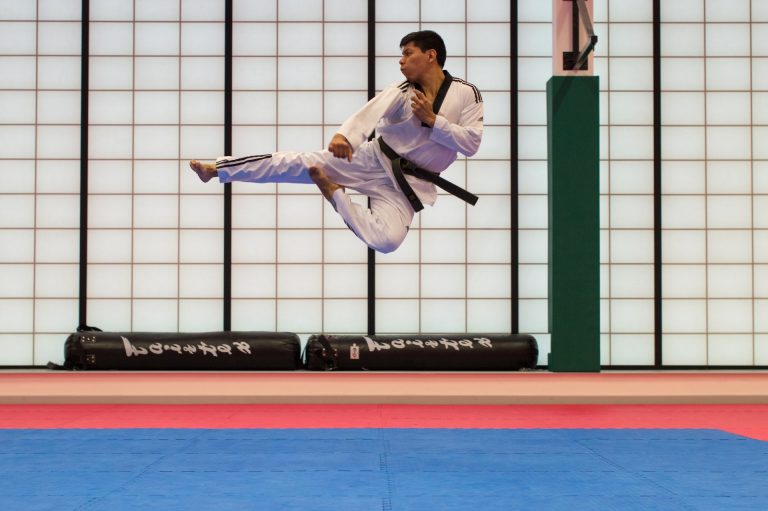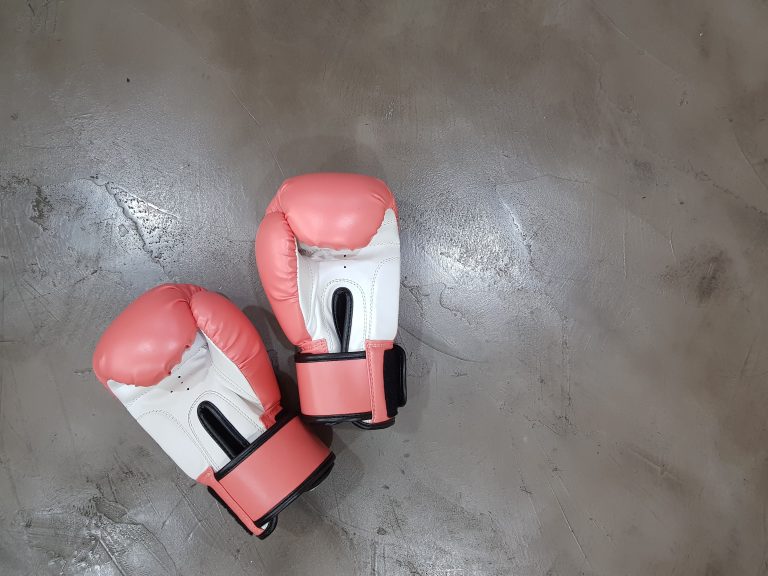Protein Powder and Karate: How it can Support Your Muscle Building
As a karate practitioner, you know the importance of having strong, lean muscles to master and perform the different techniques. Whether you’re starting out or an experienced martial artist, your training can be intensified by incorporating certain supplements into your diet. Protein powder is one such supplement that can help you achieve your muscle-building goals.
What is Protein Powder?
Protein powder is a dietary supplement made of protein extracted from different sources, including milk, whey, soy, and eggs. It is a popular choice among athletes and fitness enthusiasts to improve muscle mass, strength, and recovery.
When you perform Karate, your muscles undergo stress, and protein powder supports them in their repair and recovery process. By supplementing your diet with protein powder, you provide your body with the needed nutrients for muscle repair, growth, and maintenance.
How does Protein Powder Benefit Karate Practitioners?
Protein powder can be an excellent way for karate practitioners to support their muscle building and recovery. Here are some ways that protein powder benefits karate practitioners:
1. Promotes Muscle Growth
Karate practice demands acute strain on different muscle groups, leading to microscopic damage to the muscle fibers. Protein powder provides the building blocks for repairing and rebuilding these muscles fibers, resulting in muscle growth.
2. Supports Muscle Recovery
Since Karate is a high-intensity workout, your body needs time to recover after every training session. By taking protein powder after training, you can reduce muscle soreness and speed up the recovery process.
3. Enhances Strength and Endurance
Karate practice requires high levels of strength and endurance. By supplementing with protein powder, you can increase your muscle mass and improve strength levels, which can translate to improved endurance in training and competition.
4. Helps Meet Protein Requirements
If you are following a vegetarian or vegan diet, you might not be consuming enough protein-rich foods to meet your needs. Protein powder can serve as a convenient and effective source of protein, helping you meet your recommended daily intake.
When Should You Consume Protein Powder?
The best time to consume protein powder depends on your goals and the nature of your training. Here are three instances where you can take advantage of protein powder:
1. Pre-Workout
Taking protein powder before your workout can give you an energy boost, reduce muscle breakdown, and prime your body for muscle building.
2. Post-Workout
Taking protein powder within 30 minutes to an hour after your workout can help you recover faster, reduce muscle soreness, and improve muscle protein synthesis.
3. In-Between Meals
If you face challenges meeting your daily protein requirements, you can take protein powder as a snack between your meals to keep protein levels up.
Conclusion
Protein powder can be an excellent supplement to support your muscle-building goals as a karate practitioner. Whether you are looking to build muscle mass, increase strength, or speed up recovery time, protein powder can help you achieve your goals. Just remember that a balanced diet, regular training, and adequate rest are equally crucial factors in muscle-building. So, choose a protein powder that suits your needs and fits your overall health goals, and use it as directed to get the best results.
Protein Powder and Karate: How it can Support Your Muscle Building
Karate is a physically demanding sport that requires strength, agility, and endurance. To support these requirements, athletes need to consume a healthy diet and supplement it with proper nutrition, including protein powder. Although there are several myths surrounding protein powder, it is a safe and effective way to support muscle growth and recovery. In this blog post, we will answer some of the most frequently asked questions about protein powder and karate.
1. What is protein, and why do we need it?
Protein is one of the three major macronutrients that our body requires to function correctly, the other two being carbohydrates and fats. It is made up of amino acids, which are the building blocks of the human body. Protein plays a vital role in our body, from building and maintaining tissues, muscles, and organs to producing enzymes, hormones, and immune cells. Therefore, it is essential to consume adequate amounts of protein to support various bodily functions.
2. What are the benefits of protein powder?
Protein powder is a concentrated source of protein that can be easily digested and absorbed by the body. It provides several benefits, such as:
a. Muscle growth and repair:
Protein powder is a popular supplement among athletes and fitness enthusiasts for building and repairing muscles. The amino acids in protein powder help stimulate muscle protein synthesis, leading to muscle growth and repair.
b. Weight loss:
Protein powder can help with weight loss by increasing satiety (feeling full) and reducing hunger cravings. It can also boost metabolism, helping the body burn more calories.
c. Convenience:
Protein powder is convenient to consume and can be easily added to smoothies, shakes, or meals, making it a great option for a busy lifestyle.
3. What are the different types of protein powder?
There are several types of protein powder available in the market, including:
a. Whey Protein:
Whey protein is the most popular type of protein powder and is derived from milk. It is a complete protein containing all essential amino acids and is easily digested and absorbed by the body.
b. Casein Protein:
Casein protein is another type of protein derived from milk, but it is digested slower than whey protein. Therefore, it is a great option for a sustained release of amino acids over a more extended period.
c. Soy Protein:
Soy protein is a plant-based protein that is suitable for vegetarians and vegans. It contains all essential amino acids and is easily digested by the body.
d. Pea Protein:
Pea protein is another plant-based protein that is suitable for vegetarians and vegans. It contains all essential amino acids and is easily digested by the body.
e. Hemp Protein:
Hemp protein is a plant-based protein that is suitable for vegetarians and vegans. It is derived from the seeds of the Cannabis sativa plant and contains all nine essential amino acids.
4. How much protein powder should you consume?
The amount of protein powder you should consume depends on your body weight, activity level, and fitness goals. The general recommendation is to consume 1-1.5 grams of protein per pound of body weight per day for athletes and people looking to build muscle. However, for karate athletes, the recommended amount could be slightly less. It is always best to consult a registered dietician, who can help create a personalized nutrition plan based on your individual needs.
5. When should you consume protein powder?
To support muscle growth and recovery, it is recommended to consume protein powder within 30 minutes after a workout. This is the time when your body is most receptive to absorb nutrients, making it an optimal time for muscle recovery. However, protein powder can also be consumed at other times of the day, such as in the morning or before going to bed, to support muscle maintenance and repair.
6. Are there any side effects of consuming protein powder?
When consumed in moderation, protein powder is generally safe for most people. However, consuming excessive amounts of protein can lead to several side effects, such as:
a. Dehydration:
Consuming excessive amounts of protein can lead to dehydration, as the body may require more water to metabolize it.
b. Kidney Damage:
Although there is no empirical evidence that protein powder can cause kidney damage, excessive consumption over a prolonged period can affect people with pre-existing kidney conditions.
c. Gastrointestinal Distress:
Some people may experience gastrointestinal distress, such as bloating, gas, and diarrhea, when consuming protein powder in large quantities.
Conclusion
In conclusion, protein powder is a safe and effective way to support muscle growth and recovery in karate athletes. It is available in various types and flavors, making it easy to consume and integrate into your daily nutrition. However, it’s always best to consult a registered dietician before starting any new supplement or nutrition plan. With the right nutrition, training, and supplementation, karate athletes can achieve their desired physique and performance levels.
Inhaltsverzeichnis






